Bali was recently named as one of the top post-pandemic destinations, according to a recent survey. The island is currently closed to tourists, but if you’re looking to spend a decent chunk of time on the Island of the Gods then you can actually head there right now.
Yes, you read that right.
Whilst Indonesia is not issuing tourist visas on arrival, it is possible to obtain a social or business visa that will allow you to live it up in the tropics for up to six months. Read on to find out more.


How to Obtain a Visa to Bali
Type of Visa
The Indonesian government is still issuing long stay visas to foreigners of most nationalities. The easiest type of visa to get is a B112A visa, also known as a ‘business’ or ‘social’ visa. This visa can be used for:
- Business travel activities
- Business meetings
- Attending conferences of exhibitions
Note that this is not a working visa and Indonesian law states that you are prohibited to work or earn money whilst in Indonesia with this type of visa.
Your visa will be valid for 60 days after you enter Bali and then you will be able to renew it four times every 30 days after that, to stay for a total of six months.


Visa Agents
The easiest way to obtain a B112A visa is through a visa agent. I’ve listed four of the island’s most reputable options below but please note that I am not in any way affiliated with these companies.
The cost of a business visa starts from around $330 for standard processing. You will need to provide the visa company with a copy of your passport, which should have at least twelve months’ validity left and two empty pages.


Entering Bali
Flying to Bali
I would advise waiting for your visa to be approved before booking your flights to Bali. Note that at the moment, it’s not possible to fly directly to Bali. Instead, you will have to fly to the Indonesian capital, Jakarta, and quarantine there for five days before taking a domestic flight to Bali.
I recommend booking with an airline with a flexible booking policy, such as Emirates or Qatar. Many airlines are also including a month’s free travel insurance with their tickets, too, so be sure to check this out before you purchase a ticket.

Entry Requirements
In addition to a valid visa, here’s what you’ll need to enter Indonesia:
- A negative PCR swab test taken no more than 72 hours before your first port of departure
- A letter declaring you either have medical insurance or will cover any quarantine and covid-related medical costs yourself. Your visa agent should provide you with this.
- A completed eHAC form and QR code. You can fill this out online or use the eHAC app.
- Some airlines, including Qatar, may require you to pre-book your quarantine hotel – more on that below.
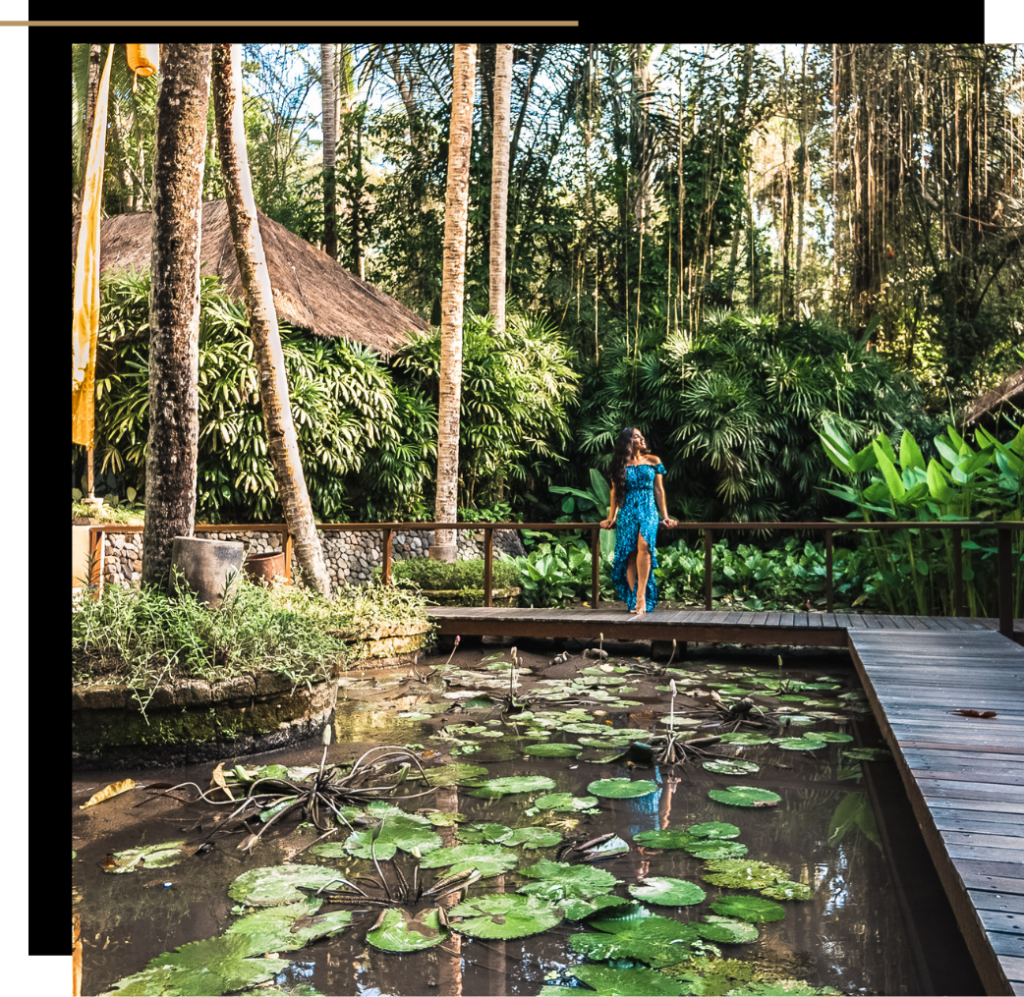

Quarantine
After entering Indonesia, you will be required to quarantine for five nights in Jakarta. You don’t have to book your quarantine hotel before you arrive but I recommend doing so that you can choose the one that you want. You will be quickly picked up from the airport by your hotel of choice and then transferred straight to your room.
On the second and fourth day of quarantine, you will be required to take a PCR test, which you will have to pay for yourself – usually between $55-65. If you test positive on either day, you will be required to continue quarantining for two weeks or taken to hospital if you become seriously ill. If you test negative, you will receive a release certificate and be allowed to continue on to beautiful Bali – yay!
Some of the best quarantine hotels include:
The Shangri-La
If you want to spend your quarantine in five-star luxury (and let’s be honest, who doesn’t?) then the Shangri-La is a fine choice. Furthermore, they’re one of the few quarantine hotels to offer balconies to guests, so if you can’t go for five days without fresh air then I recommend contacting the property to arrange a balcony room.
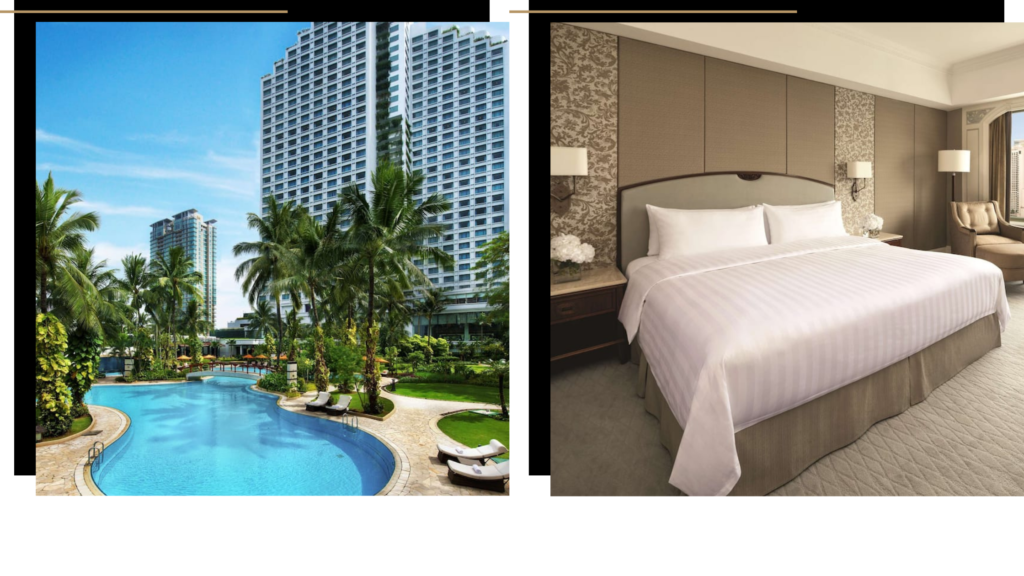
The Pullman Jakarta Thamrin CBD
With stylish, modern rooms and great city views, quarantine will most likely be a total breeze at the Pullman hotel. Each room also has a great wide working desk which is perfect if you want to actually be productive during quarantine.
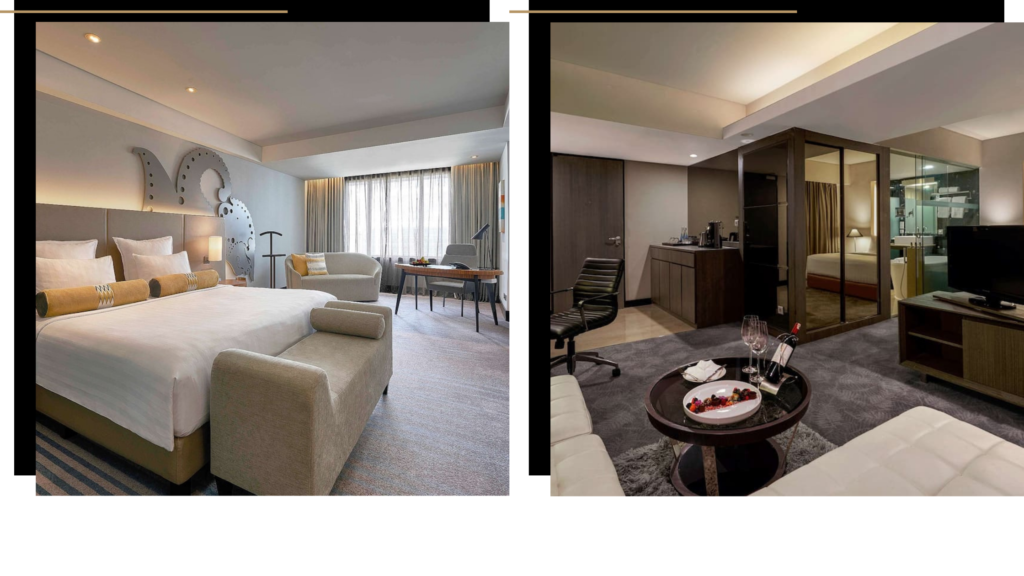
FM7 Resort Hotel
The four-star FM7 is one of the more affordable hotels on the list and you aren’t required to pay for the entire quarantine food package – just breakfast. The quarantine food is similar to airplane food and doesn’t cater very well to vegetarians, so the chances are you’ll end up ordering room service anyway. At FM7, you won’t have to pay twice. You also aren’t required to pay in advance for your booking, which is great news if you’re nervous about your trip being cancelled.
The rooms are clean, spacious and luxurious, with big bathrooms and HUGE beds – big enough for four, I’d say!
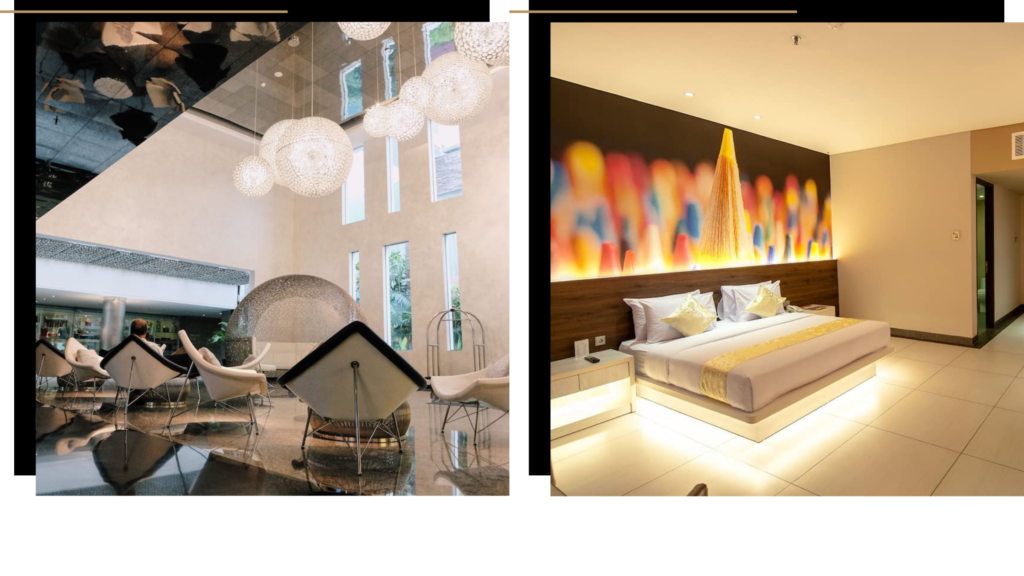

Where to Stay Once You Reach Bali
As you might expect, Bali is significantly quieter than usual right now. Usually, the biggest digital nomad hotspots are Canggu and Ubud, but the latter is pretty dead right now and many businesses have sadly closed. Canggu seems to be faring better, as most of the expat population have congregated there, so you’ll still find plenty of cafes, nightlife and coworking spaces to keep you entertained.
Most expats in Bali live in villas or guesthouses. Here are some of my favorite picks from the laid back Canggu area:
Brand New Stylish Villa – 5 Min Walk to Echo Beach

Batukaru Private Pool Suite

Private Room at Glass House


What Happens When My Visa Runs Out?
It used to be that if you wanted to renew your business visa, you had to leave Indonesia and come back. However, the rules have changed during the pandemic so it’s currently possible to apply for a new visa onshore. Be sure to continually check this and stay up-to-date with the latest rules.


For more on Bali travel, check out the island’s best medspas or coolest cafes.
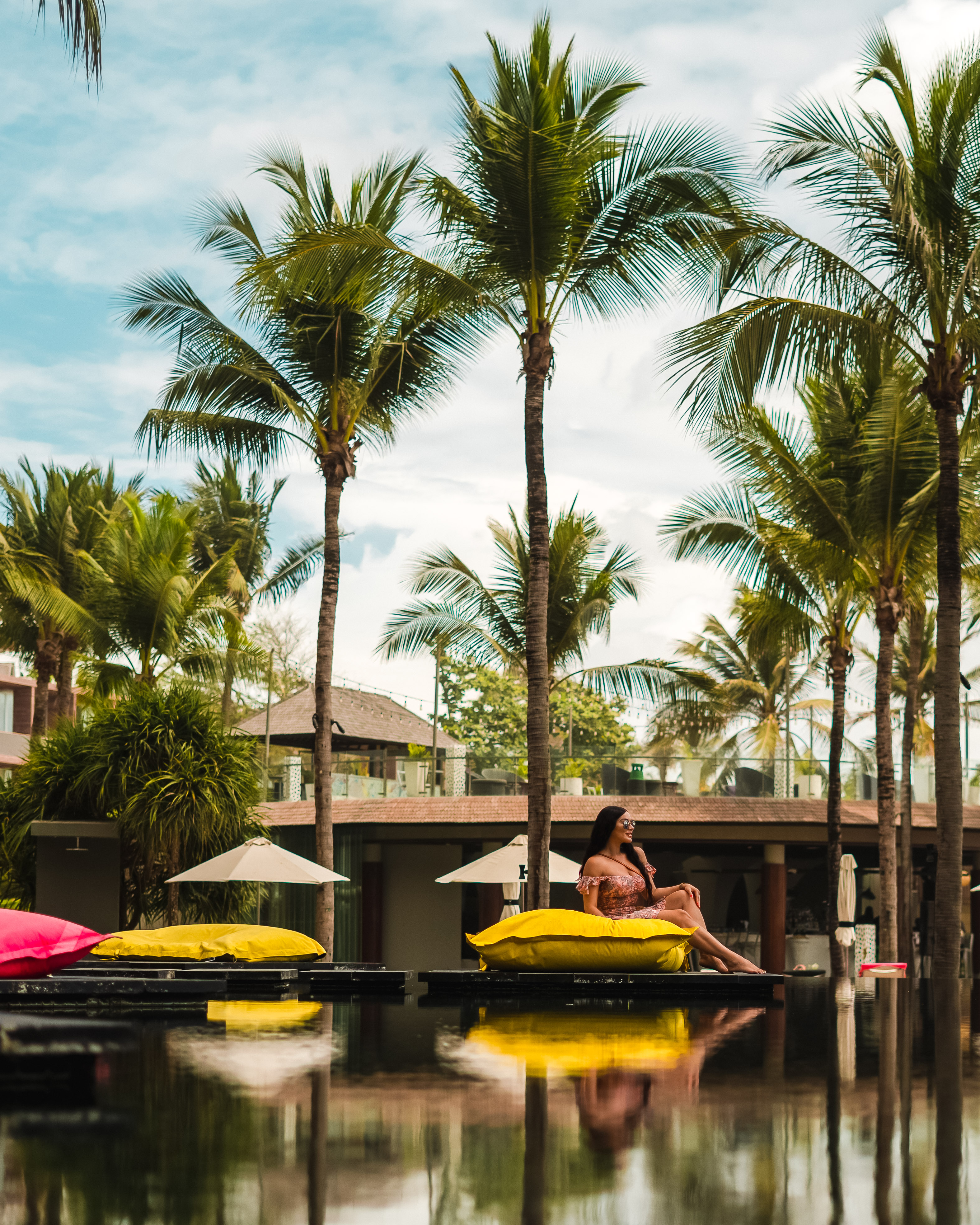

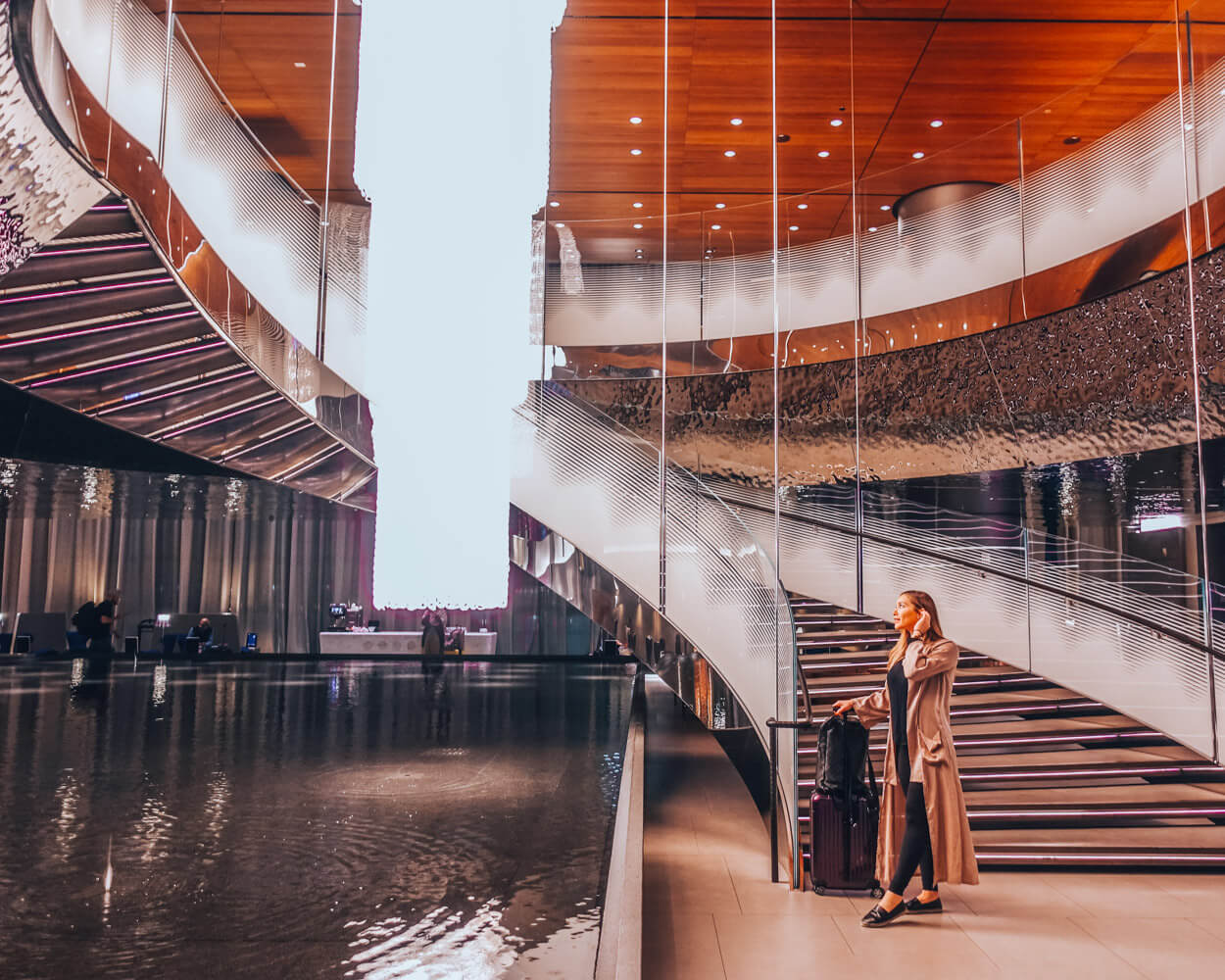

[…] Click here for a more detailed guide to getting into Bali right now. […]